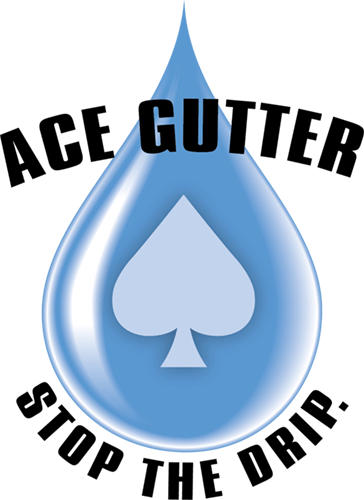As important as they are for protection from rainwater damage, rain gutters can become a magnet for pests. Leaves, twigs, and other debris that gather in your rain gutters provide a perfect place for insects and rodents to thrive.
Insects and rodents are more than just a nuisance – they are a threat to your home and health. While some pests can damage your property, others might transmit diseases, posing a risk to your and your family’s health.
Fortunately, there is a lesser-known but highly effective way to protect your property and loved ones from pests – regular gutter cleaning.
But first, let’s find out why pests love clogged gutters so much.
Why Pests Love Clogged Gutters
Pests love clogged gutters because of:
1. Stagnant Water
Clogged gutters hold stagnant water, which is a breeding ground for mosquitoes. But these pests will do more than just disturb your good night’s sleep. Mosquitoes often carry diseases like Zika virus, West Nile virus, Chikungunya virus, dengue, and malaria, making them a potent health hazard. Other insects like gnats and flies also love standing water and can complicate your pest problem.
2. Nesting Material
Clogged gutters are filled with leaves and twigs, offering a perfect environment for birds and rodents to build their nests. Once settled in, these pests can cause significant damage and even find their way into your home. Squirrels, for example, can gnaw through wooden fascia boards or rip off asphalt shingles and enter your attic. Bird nests can block the gutters, causing water to overflow and damage your home’s exterior.
3. Shelter and Food
Clogged gutters attract insects like ants and termites, which can move into your house in search of food and shelter. While termites can wreak havoc on your wooden furniture, walls, and floors, ants can invade your kitchen and build large colonies.
How Can Regular Gutter Cleaning Prevent Pests
Regular gutter cleaning kills breeding grounds where the pests could flourish. For one, it allows water to flow freely, which means no stagnant water and mosquitoes, gnats, and flies that come with it. Fewer mosquitoes mean fewer bites and a lower risk of mosquito-borne diseases, making it safe for you to plan a backyard barbeque or camping.
Second, clog-free rain gutters discourage birds and rodents from nesting, which prevents blockages that might cause rainwater damage to your roof and walls. Moreover, with no moisture or debris, insects and rodents can find it hard to settle down in your gutters and downspouts, virtually eliminating the risk of infestations inside your home.
That’s how regular gutter cleaning protects your home and prevents costly repairs
5 Tips for Effective Gutter Maintenance
DIY gutter maintenance can be effective in preventing pest infestations. However, you do need to take a few things into account, such as:
1. Using the Right Tools
You’ll need a sturdy ladder, gloves, a trowel, and a bucket for gutter cleaning. Using the right tools makes your job more efficient but also protects your hands from sharps and insects.
2. Removing Debris Thoroughly
First, remove large twigs and leaves by hand and place them in a bucket to avoid making a mess on your lawn. Next, remove all the gunk that causes blockages using a trowel or scoop.
3. Flushing with Water
After removing debris, use a garden hose to flush the gutters and downspouts. Flushing will wash away any remaining dirt and leave behind clog-free rain gutters. It’ll also help you check your gutters and downspouts for possible leaks.
4. Checking for Damage
While cleaning and flushing, check your gutters for rust, leaks, or sagging. Fix or replace damaged parts immediately to protect your home from rainwater damage. Early fixes can prevent more serious problems and costly repairs down the line.
5. Installing Gutter Guards
Gutter leaf guards can be a valuable investment. They help prevent debris from entering your gutters, reducing the frequency of gutter cleaning. Gutter guards also act as an extra layer of protection against rodents and birds, preventing them from nesting in your gutters or downspouts.
How Often Should You Clean Your Gutters
We recommend cleaning your gutters at least twice a year, typically in the spring and fall. In the spring, gutters can fill with blossoms and leaves. While in the fall, they can get clogged with fallen leaves and twigs. But with seasonal cleaning, your gutters and downspouts should keep working smoothly and prevent pest infestations.
Besides seasonal cleaning, your gutters will need some TLC after a heavy storm. Storms can blow in large amounts of debris in your gutters, leading to blockages, stagnant water, and pest infestations. Immediate cleanup can help you prevent this damage.
In addition to this regular gutter cleaning, you’ll need to inspect your rain gutters and downspouts for damage. Remember, it is easy and more affordable to fix the damage early.
When Should You Call Professional Gutter Cleaning Services
While DIY gutter cleaning is effective, you should call professionals for a thorough cleanup at least once a year. Professional gutter cleaning services offer benefits a DIY cleanup can’t.
They can:
- Clean your gutters thoroughly and efficiently.
- Spot potential problems you might miss.
- Handle the cleaning safely, especially for two-story homes.
- Fix any issues before they turn into major headaches.
Final Thoughts
Regular gutter cleaning is a simple yet effective way to prevent pest infestations and protect your home. It eliminates the conditions that attract pests and keeps the water flowing smoothly. It also offers an opportunity to inspect your gutters for damages and early fixes, saving you major headaches and money on costly repairs. Whether you choose DIY or hire a professional, make sure to clean your gutters regularly.
However, if you’d rather leave this to professionals, Ace Gutter can help. We are your reliable go-to for gutter cleaning services in Utah. Contact Ace Gutter to schedule your cleaning.


